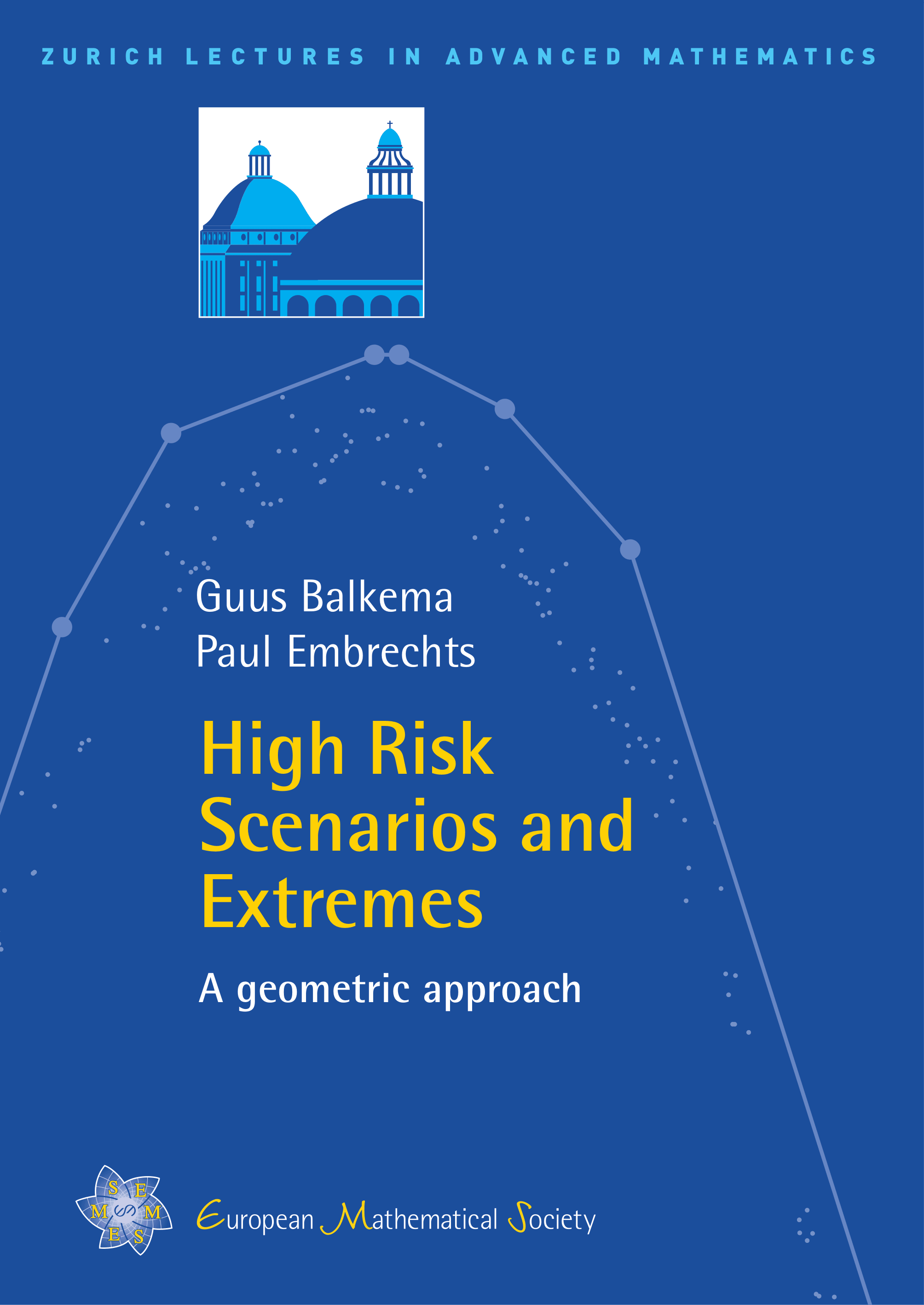High Risk Scenarios and Extremes
A geometric approach
Guus Balkema
University of Amsterdam, The NetherlandsPaul Embrechts
ETH Zurich, Switzerland

A subscription is required to access this book.
Quantitative Risk Management (QRM) has become a field of research of considerable importance to numerous areas of application, including insurance, banking, energy, medicine, reliability. Mainly motivated by examples from insurance and finance, the authors develop a theory for handling multivariate extremes. The approach borrows ideas from portfolio theory and aims at an intuitive approach in the spirit of the Peaks over Thresholds method. The point of view is geometric. It leads to a probabilistic description of what in QRM language may be referred to as a high risk scenario: the conditional behaviour of risk factors given that a large move on a linear combination (portfolio, say) has been observed. The theoretical models which describe such conditional extremal behaviour are characterized and their relation to the limit theory for coordinatewise maxima is explained.
The first part is an elegant exposition of coordinatewise extreme value theory; the second half develops the more basic geometric theory. Besides a precise mathematical deduction of the main results, the text yields numerous discussions of a more applied nature. A twenty page preview introduces the key concepts; the extensive introduction provides links to financial mathematics and insurance theory.
The book is based on a graduate course on point processes and extremes. It could form the basis for an advanced course on multivariate extreme value theory or a course on mathematical issues underlying risk. Students in statistics and finance with a mathematical, quantitative background are the prime audience. Actuaries and risk managers involved in data based risk analysis will find the models discussed in the book stimulating. The text contains many indications for further research.